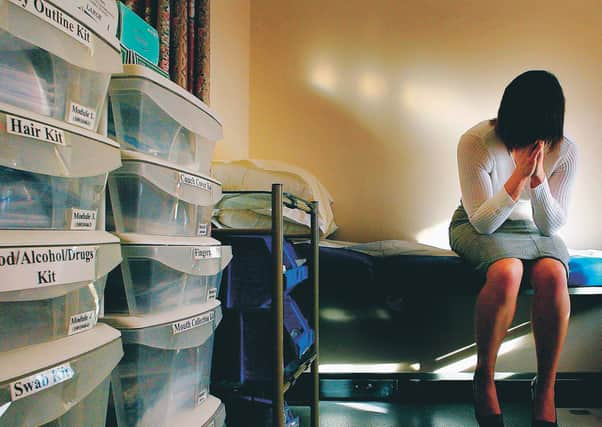Too few examiners for sex assault law


Leading sexual health specialist, Dr Anne McLellan, has told MSPs that to meet government plans to increase healthcare support for victims of sexual assault, many more female forensic examiners will be needed.
The consultant with NHS Lanarkshire, told Holyrood’s Health and Sport Committee, which is scrutinising the Forensic Medical Services (Victims of Sexual Offences) (Scotland) Bill, that health boards would need additional money to implement the legislation properly, and that it could be impossible to retain physical evidence for potential future criminal cases due to a lack of storage space.
Advertisement
Hide AdAdvertisement
Hide AdThe new Bill has been introduced by the government to “promote early and consistent access to healthcare for victims of sexual assault”. Currently only some health boards offer self-referral for adult victims of rape and sexual assault, but the new Bill would make this a legal duty across Scotland.
It would mean victims could have a forensic medical examination without first having reported the incident to police, with any evidence collected stored, allowing victims to decide whether to lodge a police report in their own time.
However Dr McLellan raised concerns about how the policy could work in practice. She said while many boards were working on ensuring appropriate premises where examinations would be conducted were in place, increasing the workforce was a “challenge”.
She said: “The single most common issue survivors raise with us is not having the choice of a female doctor to carry out the examination. Bearing in mind these take place in the immediate aftermath of a significant trauma this just isn’t acceptable. For this choice to become default – which it should be – there absolutely will have to be a drive for more female examiners in health boards.
“When it comes to forensics in Scotland we are on the right path, but none of the changes we urgently need will happen by accident. This is why we have to maintain the consensus and drive that currently exists until each survivor can expect a compassionate and trauma-informed response.”
She added: “We’re hopeful about the potential the Forensic Medical Services Bill brings with it to transform Scotland’s response to examinations following rape.”
Chair of the committee, Scottish Labour MSP Lewis Macdonald, said the evidence put forward by McLellan had “highlighted some critical challenges in improving the forensic medical service to victims of sexual assault.”
Comments
Want to join the conversation? Please or to comment on this article.